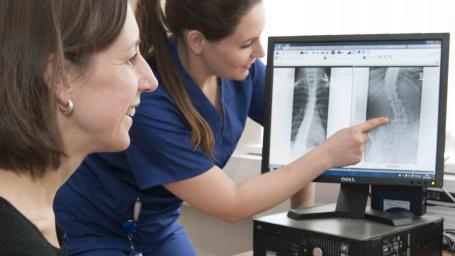Introduction
This information is for you if you are starting, or have already started taking a medicine called ciclosporin. This page contains important information on how to take this medication safely.
For most medicines, information is provided by the manufacturer in the medicine package. However, this medicine does not have a license to be used for ulcerative colitis in the UK. This means that the information provided by the manufacturer does not tell you everything you need to know. This leaflet has been designed to provide you with some extra information.
Unlicensed use
Some medicines have been licensed for a certain condition and then later, experience or research shows that it works well for a different condition. The manufacturer can choose whether to apply to the Government to have more recent information added to the license. This is expensive and in some situations it is not economically viable to extend the license.
Ciclosporin is an immunosuppressant made by the manufacturer to prevent organ rejection after transplant and for the treatment of rheumatoid arthritis and psoriasis. However, it is also useful in the treatment of ulcerative colitis.
What is ciclosporin and how does it work?
Ciclosporin works by suppressing the immune system, which is overactive in ulcerative colitis. When used in a severe flare of ulcerative colitis that has not responded to standard treatment for inflammatory bowel disease, including steroids, it has been demonstrated to reduce the need for surgical operations to remove the large bowel (known as a colectomy).
Before starting treatment
Before starting treatment with ciclosporin your doctor should check if you have any allergies, if you are (or could be) pregnant, or breast feeding. Receiving treatment with ciclosporin while you are pregnant could harm your unborn baby. If you are of child-bearing potential you should ensure that you use an effective form of birth control to prevent pregnancy. If you think you have become pregnant while using the medicine, tell your doctor right away.
Your doctor should check if you have any pre-existing medical conditions that could be complicated by treatment or if you take any medicines that may interact.
Conditions which you should ensure your doctor is aware of include:
- Renal (kidney) or hepatic (liver) problems.
- Poorly controlled high blood pressure.
- Cancer.
What dose do I take?
The dose of ciclosporin is initially based on weight and may be adjusted according to the response and blood levels of the drug. Ciclosporin capsules are available as 10, 25, 50, or 100 mg strengths and you need to pay careful attention to the capsule strengths to achieve the correct dose. Ciclosporin is available in a liquid form if you have difficulty swallowing capsules. You should stay on the same brand of ciclosporin unless directed otherwise by your doctor.
How long will I take ciclosporin for?
Ciclosporin is usually a short-term (3-6 months) option as the risk of side effects increases with longer-term use. Most patients will be started on a medicine called a thiopurine (azathioprine or mercaptopurine) around the time of starting ciclosporin when there is evidence that symptoms are responding to ciclosporin treatment. The hope is that the thiopurine will take over from the ciclosporin and then keep the colitis in remission. You will receive information on this medicine if your consultant decides you need it.
How should I take ciclosporin?
Some patients start ciclosporin intravenously (into the vein) when they are in hospital. If you respond well to the treatment, this is then changed to oral form (capsules or liquid) to take twice a day. Ideally the dose should be taken 12 hours apart. Capsules should be taken with water and swallowed whole.
Grapefruit and grapefruit juice should be avoided as it can increase the ciclosporin levels in your blood.
How will I be monitored?
Regular blood tests will check the level of ciclosporin in the blood and also check that the kidneys and liver are working properly. These will be weekly initially, decreasing to fortnightly and then monthly once stable.
To measure the concentration of ciclosporin in the blood, the timing of the blood test is very important. We want to know the lowest drug level (drug trough level), which is 12 hours after your last dose, just before taking your next dose. Your ciclosporin drug level blood test should be planned for this trough level as best as possible. Your gastroenterology team at North Bristol NHS Trust will contact you if we need you to change your dose.
Your blood pressure will be monitored regularly as ciclosporin may cause it to rise. These blood tests and blood pressure checks can be arranged with your GP surgery, and your GP will be informed of the monitoring you will need when you are on this medicine. The gastroenterology specialist pharmacists will be reviewing your blood results and will communicate any issues to you and your GP.
How will I get more prescriptions?
Ciclosporin can only be prescribed by a gastroenterology consultant or specialist registrar at North Bristol NHS Trust.
The prescriber will ensure they provide you with enough medicine to last you until your next outpatient appointment. If you are running out of medications, or your dose changes and you require different strength capsules, contact the secretary for your consultant. Your GP will be informed that you are on this medication.
What are the common side effects?
The leaflet provided by the manufacturer for ciclosporin contains a list of all the effects reported for this medicine. It is very unlikely you will experience all the listed effects, but some of the most common side effects (occurring in more than 1 in 10 patients) are listed below:
- Headache.
- Increased hair growth.
- Slightly enlarged or sore gums.
- Shakiness of hands.
- Feeling sick.
- Reduced appetite.
- Metallic taste in the mouth.
- Cramps and painful periods – some women notice their periods cease whilst taking ciclosporin.
As ciclosporin suppresses the immune system, you are potentially at more risk of infections. If you develop a sore throat, any infections or begin to feel generally unwell contact your doctor, IBD nurse or pharmacist immediately.
What happens if I forget to take a dose?
If you forget to take a dose, take another as soon as you remember, unless it is almost time for your next dose. Do not double dose. If you take too much tell your doctor immediately.
Does ciclosporin interfere with other medication?
Ciclosporin can interact with other medications. Always tell your doctor that you are taking an immunosuppressant when any changes are made to your medication. You should also inform your dentist when you see them. Always check with your pharmacist before buying any over-the-counter medicines, alternative medicines or herbal remedies. Do not take aspirin or anti-inflammatory pain killers e.g. ibuprofen, unless prescribed by your doctor.
Can I have vaccinations whilst I am taking ciclosporin?
You may not be able to have certain vaccinations whilst you are taking ciclosporin. All vaccinations may be less effective but live vaccines may also increase the risk of you developing the infection it’s protecting you from therefore should be avoided. Example of live vaccines are rotavirus, shingles, varicella, MMR (or any of the separate measles, mumps or rubella vaccines), yellow fever, oral typhoid and BCG. Discuss
with your GP or IBD nurse before having any vaccinations.
For prescription queries please contact your consultants’ secretary or the gastro pharmacists/IBD nurses.
IBD advice line: 0117 4146354
Appointments helpline: 0300 5550103
© North Bristol NHS Trust. This edition published January 2024. Review due January 2027. NBT003124.



